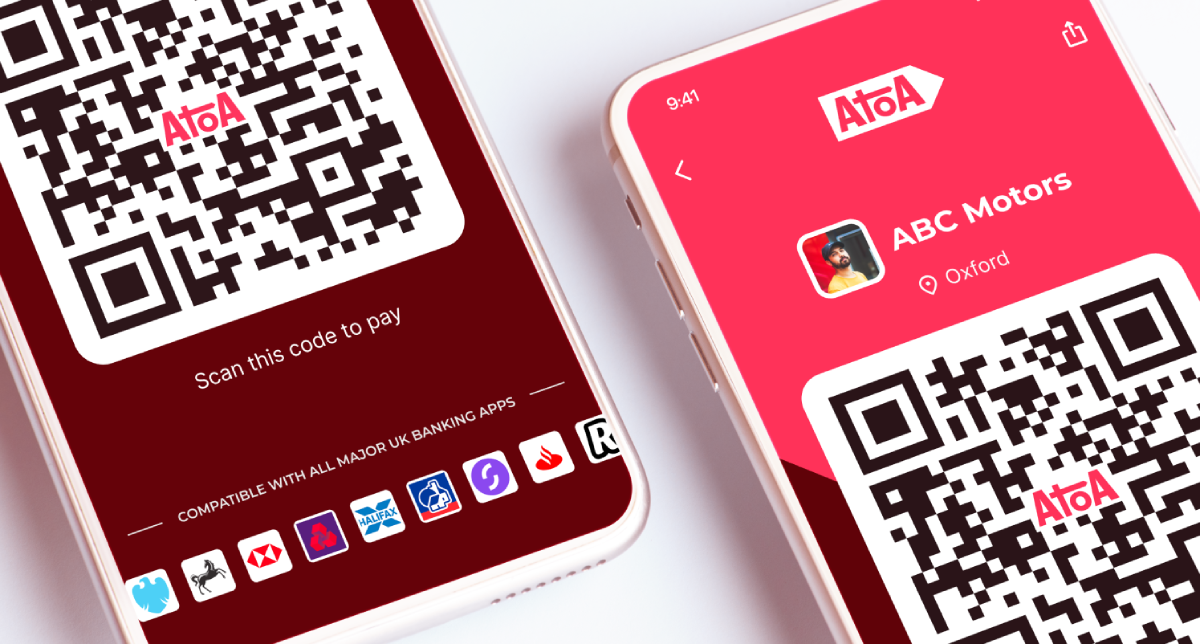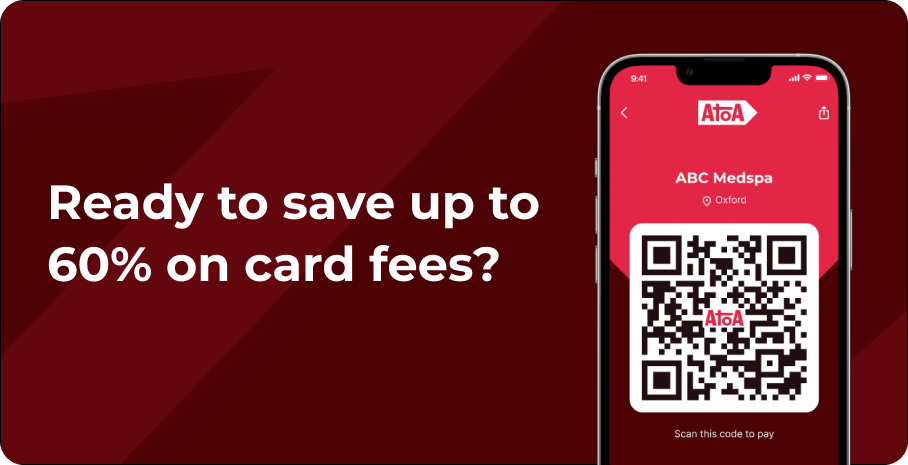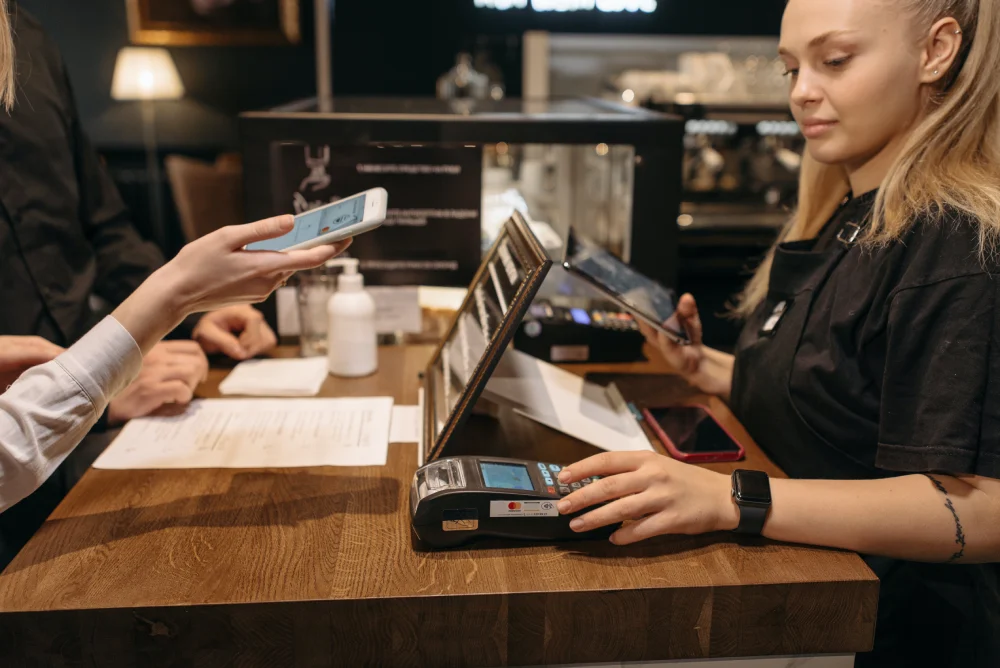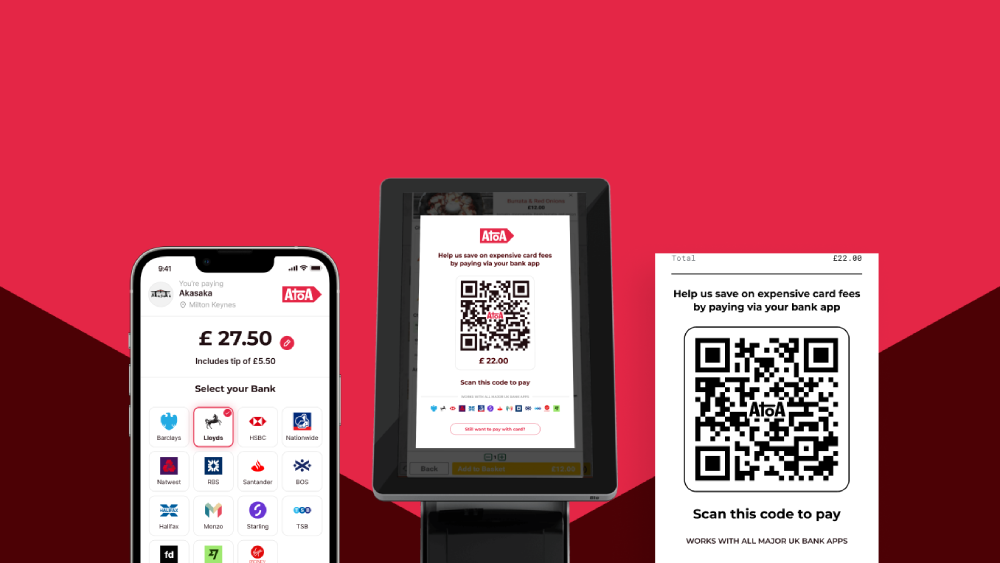Ready to get started?
Easily integrate next-generation payments and financial data into any app. Build powerful products your customers love.
Business-to-business payments (B2B) are transactions between companies, usually for goods or services. For example, if you run a bar, you might use them to pay your drinks supplier or wholesalers. The world moves fast, and businesses need secure and efficient ways to handle these transactions. B2B payment solutions have your back across various methods, from open banking payments to cards and digital payment platforms.
This article covers:
- What B2B payments are and how businesses use them.
- The best B2B payment solutions out there right now.
- How businesses can make use of these payments to improve operations.
What are B2B payments?
Now we know the basic background of payments between businesses, let’s cover some relatable examples. Familiarise yourself with B2B payments by imagining you run a hospitality business. This industry relies on goods from others, such as drink suppliers and produce. Plus, maybe the occasional visit from an electrician or advice from an accountancy firm…
If you’re stuck for imagination, here are a few other examples of how small businesses use B2B payment solutions:
Paying suppliers for raw materials or inventory: If a local bakery orders flour, sugar, and yeast from a wholesale supplier for baked goods, they will make regular payments to keep a steady supply of ingredients.
Paying invoices for professional services: A bar in Manchester hires a freelance graphic designer to create branding and pays the invoice once they deliver the project.
Payroll or contractor payments: A small construction company employs skilled tradespeople such as carpenters, plumbers, and electricians and pays them weekly.
Cross-border payments to international partners: Online retailers who source products from different countries pay them using specialist cross-border platforms.
Commonly used B2B payment methods
We all want an easy way to pay the bills and keep everything ticking along, but sharing bank details or double-checking sort codes five times isn’t so smooth! Growing businesses like yours can make payments to suppliers or clients in several different ways:
- Bank transfers: A widely used method, but slow and hard to match up with invoices.
- Direct debit: Automated payments that are useful for regular or recurring bills.
- Credit cards: They are widely accepted but come with high processing fees.
- Invoices: Some open banking services allow businesses to pay each other directly from invoices.
- Mobile wallets: These are mobile or digital platforms for making payments in-store, online or in-app purchases.
- Open banking or A2A payments: Direct account-to-account transfers are often faster and cheaper for any payment.
How do B2B payments work?
How B2B payments work varies between solutions, but here is a generalised overview of how they usually happen.
- Create an invoice: The seller sends an invoice to the buyer showing the goods or services provided, plus the amount due and their payment details.
- Payment starts: The buyer pays through their chosen B2B payment method, which could involve online bank transfers, direct debits, card payments, or open banking.
- Payment processes: The payment is then processed by the chosen provider.
- Payout: Finally, funds are transferred from the buyer’s account to the seller’s account to complete the process.
The time it takes to pay other businesses varies depending on factors like:
- Processing times and fees between different payment methods.
- Cross-border payments may involve additional steps and considerations. Plus, not all providers offer them.
- Specific regulations that apply to certain industries or transaction types.
The 5 best B2B payments companies in the UK
Many companies offer B2B payment solutions designed to make running your business easier. This comparison table includes some of the leading providers in the UK worth researching.
| Provider | Benefits | Key features | How to use them |
|---|---|---|---|
| Atoa Instant Bank Pay | Lower fees than card payments with instant payouts | Instant bank transfers without card details | Great for B2B and customer payments. |
| GoCardless | Simplifies recurring payments | Direct Debit automation and international payments | Ideal for businesses with subscription-based models. |
| Stripe | Wide range of payment options, plus easy integration | Card payments, invoicing, customisable checkout | Popular with e-commerce businesses. |
| Worldpay | Global reach, known name | Card processing, online payments, fraud prevention | International B2B payments. |
| Yapily | A cost-effective open banking infrastructure | Account-to-account payment API integration | Primarily for developers and businesses building financial products. |
Using B2B payment software
Businesses can save time on managing their B2B payments with specialised automation software that includes features like:
- Invoice creation and tracking
- Payment scheduling and automated reminders
- Accountancy integrations and software
- Expense management
- Reporting and analytics tools
Research B2B payment providers and what they offer, as some can be connected to other software to send, receive, sync and log your transactions. For example, Atoa’s easy integrations with Xero and QuickBooks.
Using open banking as a B2B payment solution
Fintech companies are helping to improve B2B payments with fresh-faced solutions, such as Atoa’s instant bank payments.
Here are some examples of how businesses are currently using B2B payments:
- Instant payments: Businesses can make payments in seconds, without waiting days or weeks for funds to clear, which is ideal for small businesses to access funds for wages, stock, and overheads.
- Smoother payroll: High-speed payments can help pay salaries, bonuses, and expenses on time.
- B2B payments: Instant B2B payments improve the supply chain and reduce payment disputes, which is helpful for retail and hospitality operators relying on deliveries from other businesses.
- Send instant refunds: Send instant customer refunds to improve satisfaction and reduce the risk of chargebacks, meaning customers are more likely to return.
- Better decision-making: Getting funds faster can help businesses make better decisions using data to identify trends, and fine-tune financial planning and forecasting.
Open banking payments vs traditional B2B payments
Challenges with traditional B2B payments | How open banking B2B payments can help |
|---|---|
| Customers miss payments: Slow payments mess up your cash flow. | Get paid faster: Money moves almost instantly so you get paid sooner. |
| Confusing invoices: Dealing with piles of invoices and matching them to payments takes time. | Simple invoices: Create and track invoices, leaving less room for mistakes and delays. |
| Expensive fees: Sending and receiving money can cost a lot. | Lower costs: Open banking means lower fees, which saves you money. |
| Fraud risks: Payments can be targeted by fraudsters. | No chargebacks: Biometrics and SCA protect your money. |
| Doing everything: Manually handling payments is slow and can lead to errors. | Let tech do it: Automate payments to save time and effort. |
| Not knowing where your money is: It’s hard to track payments, especially with multiple suppliers or customers. | See your money: You know where your payments are, all of the time. |
| Trouble connecting to other software: Maybe you’re struggling to pair your payments with accounting programs. | Works with your existing kit: Open banking payments connect to your POS or accounting tools. |
| Trouble connecting to other software: Maybe you’re struggling to make payments through accounting programs. | Stay ahead: Open banking is designed to adapt and change with new technology, so you don’t have to worry about falling behind. |
| Limited payment choices: Traditional methods might not offer the flexibility you need. | Even more payment options: More ways to pay, including instant invoice payments. |
| Dealing with card networks: Cards go through more steps, adding extra costs. | Pay directly: Open banking lets you pay directly to other businesses, cutting out the middleman (who usually wants a cut!) |
| Matching payments to invoices is hard: Pairing payments up with invoices takes time. | Payments sync automatically: Breathe a sigh of relief! |
What is the future of B2B payments?
Businesses are increasingly looking for ways to make and receive payments instantly, which can help improve cash flow and reduce delays. Below are some trends that will continue to shape the future of B2B payments to make them faster, more efficient, and more secure.
- Open banking: The rise of open banking payments is introducing faster, more efficient, and more secure checkout solutions.
- Fintech and challenger banks: Fintech companies and neobanks continue to develop new B2B payment options that disrupt traditional payment processes.
- Automation: Businesses that automate their B2B payment processes may reduce errors and save time.
- Cross-border payments: Growing global trade means a bigger demand for faster, more efficient, and more affordable cross-border business payments.
- Flawless security: Protection against fraud and cyberattacks is becoming increasingly important as companies use digital payments more.
Key takeaways
Some benefits of using open banking for B2B payment solutions may include:
- Faster payments: Businesses can pay and get paid faster with instant or same-day transfers.
- Lower costs: Open banking payments have lower fees than traditional methods, resulting in better cash flow.
- Automation: Sending automatic payment reminders by SMS or email helps to reduce time chasing payments.
- Open banking integrations: Pay B2B invoices and sync up accounting records by connecting them to platforms such as Xero or QuickBooks.
In conclusion, B2B payments are an essential part of doing business. Understanding the different options and choosing the right solution can help you save time and reduce costs. Furthermore, it’ll boost your bottom line. By exploring your options and finding a solution to suit your needs, you’ll unlock a new level of financial efficiency.
Are you ready to experience better B2B payments? Try a no-string attached 7-day free trial with Atoa. A full week of free payments, which moves to 0.7% per transaction plus VAT once the introductory period ends.
FAQs
What are B2B payment solutions, and why do I need them?
B2B payment solutions make it easy for businesses to pay each other, usually for goods or services. They replace outdated methods like manual transfers to save time and reduce errors. Additionally, they offer a range of features, from secure online payments to automated invoicing, which can improve operations.
What kind of fees do B2B payment solutions have?
Fees vary between providers, with some charging transaction fees or sometimes monthly or setup fees. Therefore, you should compare their pricing plans and choose a solution that aligns with your budget and payment volume.
Are B2B payment solutions secure?
Many leading B2B payment solutions use encryption and fraud monitoring to protect your money and keep customer data under wraps.
How do I know which B2B payment solution will work for my business?
Consider the size of your business, the type of payments you make (domestic or international), and whether you want additional features like automated invoicing or cash flow management.
Can I use B2B payment solutions with my existing accounting software?
Many solutions, like Atoa, offer integrations with popular accounting software such as QuickBooks or Xero. This can streamline your bookkeeping and reduce the chance of errors.




